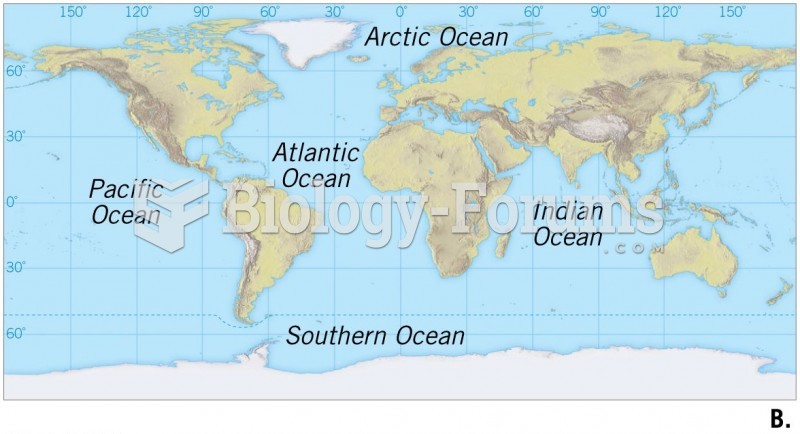|
|
|
The most common treatment options for addiction include psychotherapy, support groups, and individual counseling.
Though the United States has largely rejected the metric system, it is used for currency, as in 100 pennies = 1 dollar. Previously, the British currency system was used, with measurements such as 12 pence to the shilling, and 20 shillings to the pound.
Urine turns bright yellow if larger than normal amounts of certain substances are consumed; one of these substances is asparagus.
When Gabriel Fahrenheit invented the first mercury thermometer, he called "zero degrees" the lowest temperature he was able to attain with a mixture of ice and salt. For the upper point of his scale, he used 96°, which he measured as normal human body temperature (we know it to be 98.6° today because of more accurate thermometers).
Blood is approximately twice as thick as water because of the cells and other components found in it.







